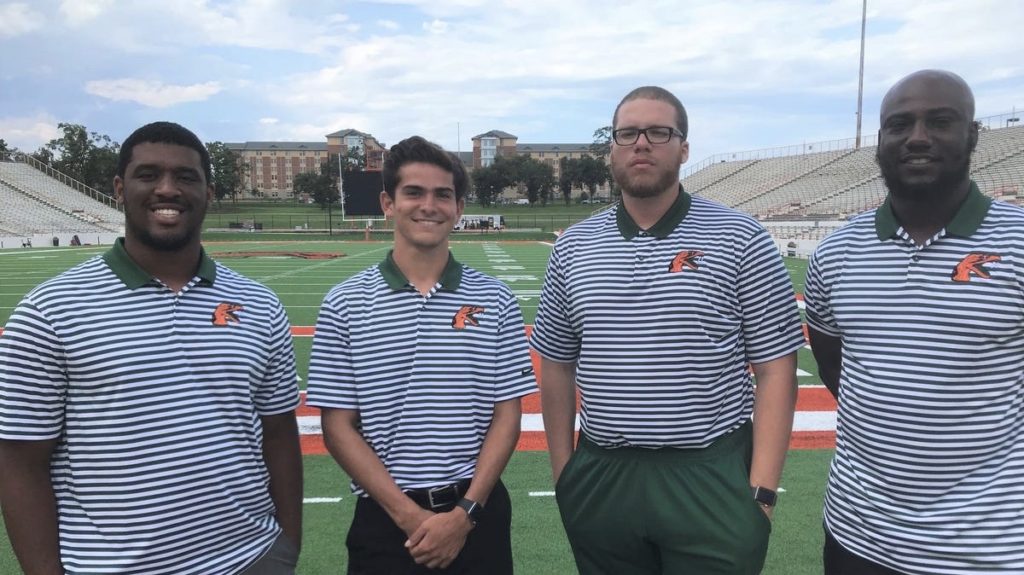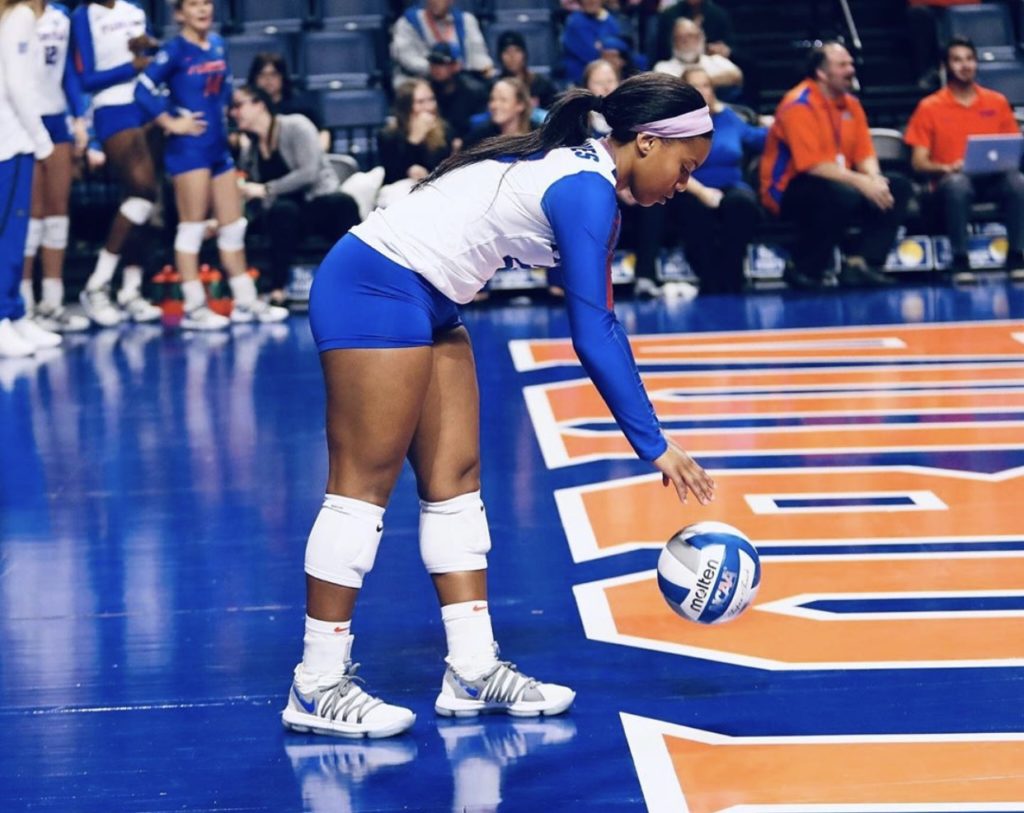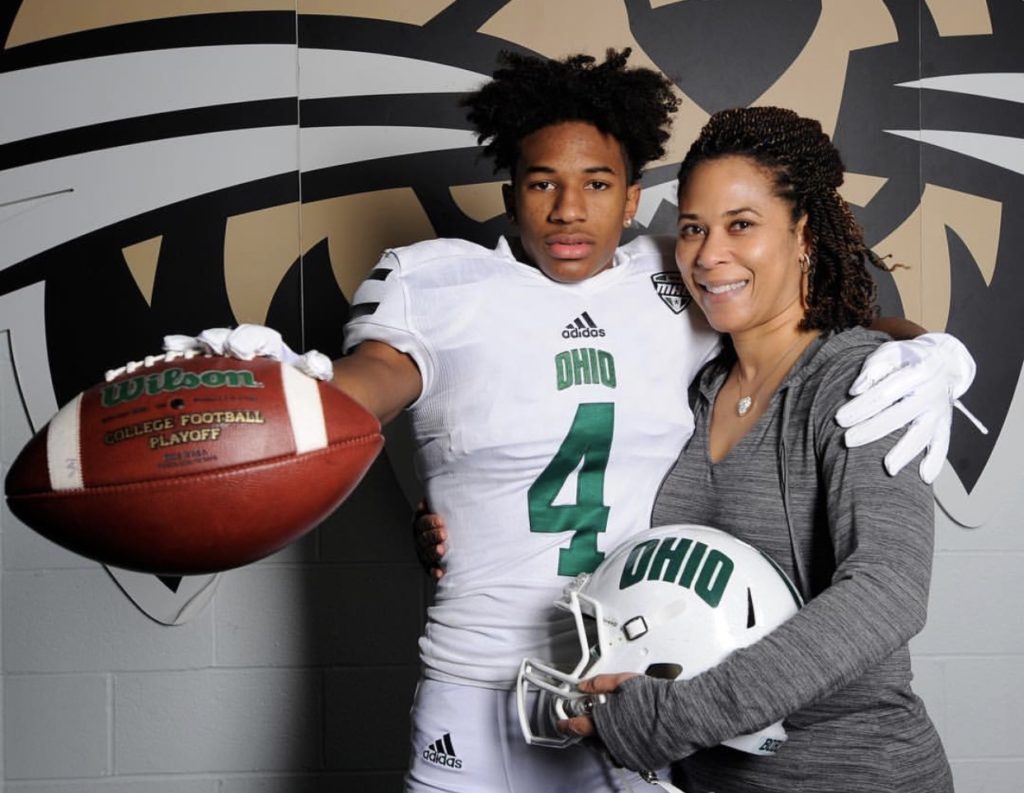Lifestyle | January 27th, 2020
Coaches’ Kids: Life Behind the Saturday Night Lights
By: Aiyana Ishmael

College football is one of America’s many forms of entertainment. Millions of fans gather each season to cheer for their favorite collegiate players. 130 teams populate the Division I Football Bowl Subdivision, consistently drawing in over a billion dollars each year to the National Collegiate Athletic Association.
Screaming fans, bright lights and touchdowns encompass the college football experience. But when the stadium clears, super fans trek back home and post-game interviews end, a group of people are still waiting behind.
Football kids grow up behind the scenes of these glorified games. When the clock runs out one team wins, the opponent loses and fans leave the stadium with their feelings dropped at the exit. However, there are coaches’ families that cannot leave it there. This televised battle is their life. And while many assume their lifestyle is one to always be thankful for, people don’t realize the challenges that come with being a coach’s kid from constantly moving from city to city, unfiltered opinions from strangers and the never-ending challenge of making friends within every new school.
 Colin Diaz photographed second from left. Photo provided by FAMU athletics.
Colin Diaz photographed second from left. Photo provided by FAMU athletics.
Moving Around
Colin Diaz grew up in this life. His father, Manny Diaz, coached for Florida State University, North Carolina State University, Middle Tennessee State University, University of Texas, Louisiana Tech, and Mississippi State. He has now been at the University of Miami since 2016. The Diaz family has moved seven times.
“Everyone always asks me why I’ve moved so much,” Diaz said. “They always ask if I’m military and I’m always having to say no.”
Similar to military brats, coaches kids are a part of a small community that many don’t understand. This instability creates a challenge when trying to build real connections.
“It’s really hard to have life-long friends,” Diaz said. “You don’t really get to connect with people. When you are constantly moving around you leave behind friends. They always say we’re going to keep in touch, but they never really do.”
Each game matters. Every moment on the field matters more than many people realize. Losses affect more than the team’s record, it affects the home and the life these families have created.
“College coaching at any level is such a cut throat industry and there aren’t a lot of second chances,” Chanelle Hargreaves, a fellow coach’s kid said. “Imagine your life being based off points on a scoreboard. As a coach’s kid you wake up every Saturday morning understanding that this is the Saturday that could possibly change your life for the next several years. You cheer your heart out like your life depends on it because in a sense it does.”
The end of football season lands directly during the holiday season. Christmas and New Year’s are always a joyous time for families. For football families there’s always a bit of anxiety attached to this time of year.
Most teams attend a bowl game during or around Christmas. The outcome of the game can determine whether staff will be fired or retained.
So for many coaches’ kids, losing a bowl game can mean it’s time for a new house, new friends, and new beginnings — once again.
“The biggest misconception that other people probably make is the fact that being a coach’s kid is all fun and games,” Ashlinn Swasey, daughter of Florida International University’s Director of Strength and Conditioning, Andreu Swasey, said. “When in reality it’s actually a lot of give and take that goes on. You never know what can happen during a given season. You could be here one day and gone the next.”
Longevity is always a football team’s goal. Keeping a solid infrastructure to build on. Coaches’ kids want the same thing. But sometimes buildings fall, unexpected turnovers happen and just like that you’re forced to rebuild.
“One thing I wished people realized about my lifestyle is that nothing is ever promised,” Swasey said. “ I have seen a lot of coaches and their families have to pack up and move. Which isn’t necessarily easy since these are people who you spend so much time and grow up with so it’s hard to have to see them go. But as you get older you realize that it’s all a part of the game.”
 Ashlinn Swasey and her father Andreu Swasey. Photo provided by Swasey.
Ashlinn Swasey and her father Andreu Swasey. Photo provided by Swasey.
The Constant Trash Talk
Sports fans are known to be intense. From disparaging comments yelled during games to collective tweets and hashtags on social media, these fans are always on the defense.
“I’ve learned to just stay off of Twitter,” Diaz said. “I don’t look up other people’s opinion. If we win they’ll be happy, if we lose they’ll be pissed.”
Winning seasons cause better days. The fans aren’t angry, so the support is usually there. Losing seasons, on the other hand, are a whole different whirlwind. Being family of the team means sticking it out through all the punches and kicks while bandwagon fans jump on and off each year.
“We can’t just turn on being a fan whenever we want,” Swasey said. “When we are winning it’s all great, but the moment there is a loss or a coaching error, fans immediately start talking trash right in front of your face or talking aggressively online. It just comes with the territory.”
Growing up it’s hard to understand why complete strangers have so much to say about your family. It becomes impossible not to take it personally.
“The biggest misconception about being a coach’s kid is that they think making jokes about the team your dad coaches for is okay, but that’s how my dad puts food on the table so it’s not funny,” Tyler Walton, son of the Jacksonville Jaguars Secondary & Defensive Backs Coach, Tim Walton, said.
Different sports blogs, empty Twitter accounts and long paragraphs on Facebook are just the tip of the iceberg for these kids. As they’ve gotten older they learn that it’s just a part of the territory, but it still doesn’t make it right.
“Some people don’t realize that this is more than a game for us, it’s our life,” Swasey said.
 Chanelle Hargreaves, who plays volleyball for the University of Florida. Photo provided by Hargreaves.
Chanelle Hargreaves, who plays volleyball for the University of Florida. Photo provided by Hargreaves.
Making Time For Family
Working for a football team means long hours. For many coaches they’re at school from 5 a.m. to 8 p.m. on regular in-season days. That can take a toll on their kids. They don’t get to spend a lot of time together, so the moments they do share are treasured.
“My dad’s football schedule wouldn’t readily make him available for a lot of the things that were going on in our lives,” Swasey said. “He wouldn’t always be around especially during season or recruiting time. Scheduling was always a really hard thing in my house.”
For these families, the little moments matter the most.
“Holidays and most Sundays are valuable to coaches families because it is the one time that the job allows you to get any quality time with your dad,” Hargreaves said.
The football field is where these kids grew up. Hanging out on the sidelines created a love of the game for many of these kids. Walton, who watched his dad coach football all his life, now plays for Ohio University. He says if he weren’t a coach’s kid he doesn’t think he would have the passion he has for football now.
“Some of my greatest moments have been watching my dad coach in big time games,” Walton said. “Emotions run high and being able to watch him give his all during playoffs and primetime football games is what it’s all about.”
Swasey says that although there are tribulations being a coach’s kid, she can’t imagine a life outside of it. She was born into it so for her there isn’t any other way she’d want to live. She realizes that football is “literally her whole life” and she doesn’t want to change it for anything.
“I am blessed that my dad chose to endure a career in being a coach and gave me his coaching skills that help me navigate through the game of life.” Swasey said.







